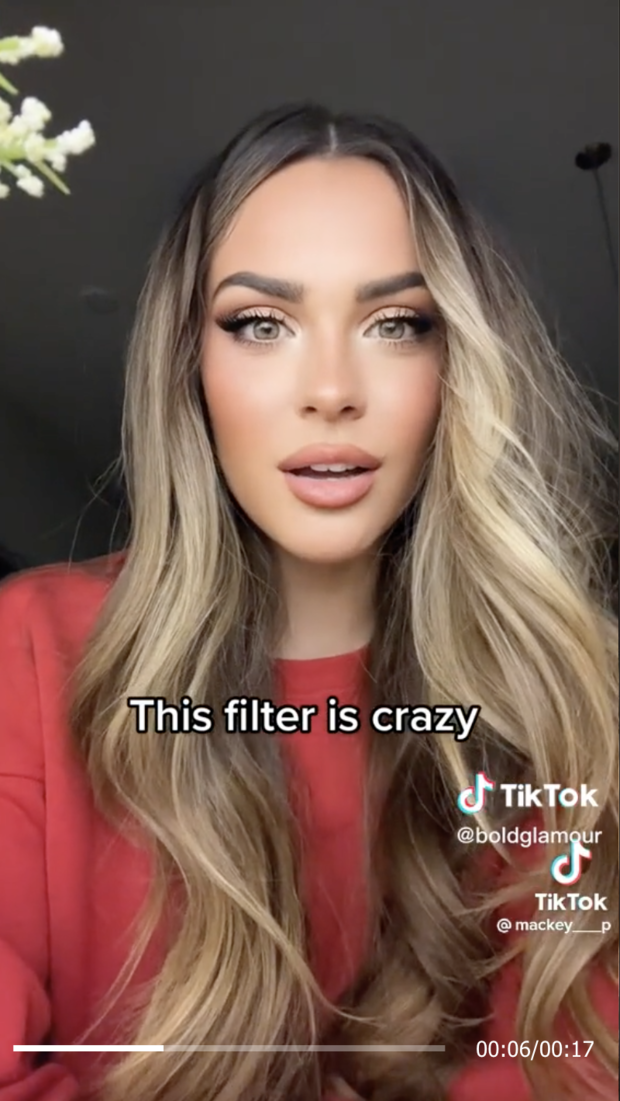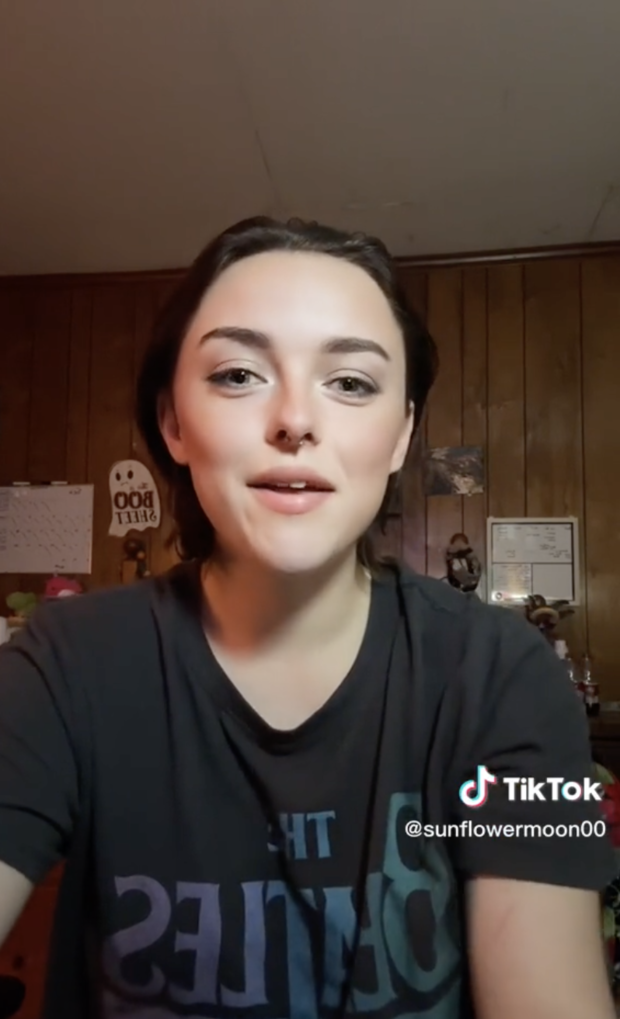[ad_1]
TikTok’s new hyperrealistic Bold Glamour filter is raising concerns among some mental health experts over the potential impact the “beautifying” digital image effects may have on social media users’ well-being.
The AI-powered filter, which TikTok added earlier this year, uses artificial intelligence to sculpt users’ facial features, smooth out their skin and brighten their eyes. The effect is virtually seamless, making the changes hard to detect. Since its rollout, the Bold Glamour filter hashtag has racked up more than 200 million views on TikTok, the app shows.
Although TikTok users seem eager to digitally enhance their appearance, Keith Feigenson, an associate professor of psychology at Pennsylvania’s Albright College, worries that using filters like Bold Glamour could cause emotional or psychological harm to people on social media, especially young female users.
“While social media is just part of this picture, it is likely that using these types of filters will increase risk for lowering self-esteem across demographics, and the risk would be particularly high for adolescent girls,” Feigenson said.
mackey__p/TikTok
According to a City University of London study, 90% of young adult women ages 18-30 said they filtered their social media images because of the pressure they feel to conform to perceived beauty standards.
Women aren’t the only ones who use technology to improve their looks. Roughly 21% of Americans of any gender have reported using beautifying filters on their photos before posting their images to a social media profile, according to a 2021 Consumer Reports study. Among those who say they use filters, 9% admitted to “always or nearly always” using them while 13% said they used the tech “often.”
sunflowermoon00/TikTok
Filters aren’t only increasingly popular on TikTok — they have also gained traction on platforms like Facebook and Snapchat, where they are used by millions of users. Facebook and Instagram alone report more than 600 million people have experimented with the platforms’ augmented reality effects, the Massachusetts Institute of Technology Review reported.
Meanwhile, 63% of people on Snapchat have used the app’s augmented reality filters, according to SocialPilot, a social media management and marketing tool.
Given the rising popularity of filters, social media companies have a responsibility to be “completely transparent” about the “potential consequences” the use of filters poses, Feigenson told CBS MoneyWatch.
“Companies should put themselves firmly in the camp of protecting mental health by offering safe spaces for online communication, resources for individuals to access mental health assistance, and easily understood descriptions of potential risks,” Feigenson said.
Roughly a third of U.S. school girls in the U.S. have seriously considered attempting suicide, according to a 2021 survey from the Centers for Disease Control and Prevention, up from less than 20% from teen girls a decade earlier. More than half of teen girls, 57%, reported feeling “persistently sad or hopeless” — a record high — the agency found.
[ad_2]
Source link


